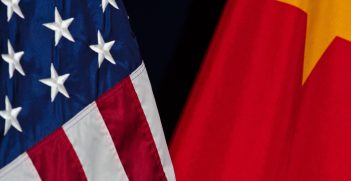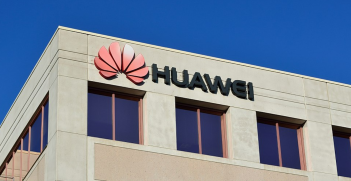Vietnam’s Approach to the South China Sea Disputes And the Test of The Haiyang Di Zhi 8

China is attempting to exert psychological pressure on Vietnam at a time when Vietnam is preoccupied. However, China is not only testing Vietnam, but the region – and even the global community – as a whole.
The South China Sea (SCS) continues to be Vietnam’s foremost security concern. The ongoing incident around the Vanguard Bank in the south of the SCS is the latest test of Vietnam’s ability to counter-coerce Beijing’s incremental advances in this maritime domain. Given that Hanoi will assume duty as ASEAN’s chair later this year, it will also be a litmus test for both regional solidarity as well as the viability of a meaningful ASEAN-China dispute management mechanism of the Code of Conduct (CoC).
The Haiyang Dizhi 8, a survey vessel belonging to a Chinese government-run corporation, began surveying a large swath of seabed on 3 July northeast of Vanguard Bank off the coast of Vietnam. The ship was apparently undertaking an oil and gas survey across two blocks, Riji 03 and Riji 27, which fall within Vietnam’s continental shelf under the United Nations Convention on the Law of the Sea (UNCLOS). The survey ship has been escorted by other vessels, including the China Coast Guard and maritime militia. At the same time, China Coast Guard ships have been harassing Vietnamese drilling operations in Block 06-02 to the south.
First, China’s activities near Vanguard Bank pose a legal challenge: they demonstrate that China is persistent in pursuing administrative control within its 9-dash line, despite that claim’s inconsistency with international law. This is the first time it has engaged in such a survey since the 9-dash line was declared illegal by an arbitral tribunal ruling in 2016. In this way, Beijing is openly disputing the legality of continental shelf rights guaranteed by UNCLOS. The area has been subject to natural resource exploitation by Vietnam for decades. But Beijing is now trying to create a dispute over areas that were effectively undisputed in the past.
China’s actions also pose a diplomatic challenge: Beijing is testing not only Vietnam, but also the United States and the international community. Will the international response be as muted as it was after the 2016 arbitral ruling? China is openly insulting the peaceful pursuit of dispute resolution through the ongoing code of conduct (COC) negotiations with ASEAN. The progress heralded by that process, which has resulted in a single negotiating draft text, evidently exists only on paper not in practice.
Finally, Beijing’s actions represent a very real economic challenge. Beijing’s continuous coercion targeting other claimants’ natural resource exploitation is meant to force them into joint exploration schemes with Beijing, even in undisputed waters. China will oppose and exert pressure when claimants seek to explore natural resources on their own or with any other international partner.
There is never a good time to face coercion, but this test by China comes at a moment when Hanoi is particularly busy, preparing not only for the upcoming ASEAN Chairmanship and its 2020-2021 term on the UN Security Council, but also for its 13th Party Congress and accompanying potential leadership change in early 2021. It seems likely that Beijing is exerting more pressure on Hanoi ahead of its ASEAN chairmanship as a psychological test.
Chinese incursions in Vietnam’s continental shelf and exclusive economic zone (EEZ) are by no means a new phenomenon. The most serious recent incident occurred in 2014, when China deployed an oil rig, the HYSY-981, into Vietnam’s claimed EEZ, resulting in a diplomatic crisis between the two neighbours. The current situation near Vanguard Bank, however, represents a more serious challenge on several levels.
Beijing has scaled up its pressure in the South China Sea not only vis-a-vis Vietnam, but also toward Malaysia and the Philippines. It is unreasonable to expect that the tactics Vietnam adopted in 2014 to deal with the HYSY-981 incident will be similarly effective today, especially given the fact that Beijing now pursues its activities with an awareness of their reputational costs, which China seems prepared to accept. Any attempt at “megaphone diplomacy” this time around will have to include the United States, which has already become involved, as well as other supporters of the rule-based international order. But even so, such diplomacy alone is unlikely to lead to a sustainable resolution of the standoff.
Unlike in 2014, Beijing is concurrently exerting pressure on more than one Southeast Asian claimant. These incidents are a real test for the willingness of both ASEAN and the international community to defend nations’ sovereign and economic rights under the rules-based order. Unless regional countries are willing to look beyond individual national interests and speak out in support of other claimants, transgressions of the maritime rules-based order is likely to become a new norm that will no longer generate strong reactions. Respect for international law, including the rights guaranteed by UNCLOS, must be supported and defended by all, including non-claimants. So far, only the United States has taken a public and explicit stance on China’s activities near Vanguard Bank.
The lesson of the muted international reaction to the 2016 arbitral ruling is too evident to allow for another weak response. The current standoff serves as proof that Chinese coercion will continue and that the code of conduct process makes no difference in Beijing’s plans to dominate the South China Sea. It might be a crisis for Vietnam individually, but it could also serve as an opportunity for the international community—beyond the United States—to react appropriately to the violations of UNCLOS and infringement on a littoral state’s continental shelf.
Dr Huong Le Thu is a senior analyst at the Defence and Strategy Program at the Australian Strategic Policy Institute (ASPI).
This is the sixth article in a series of articles on the South China Sea published on Australian Outlook, first prepared for a workshop on the South China Sea, hosted by the Maritime Security Research Group at UNSW Canberra.
This article is published under a Creative Commons Licence and may be republished with attribution.





